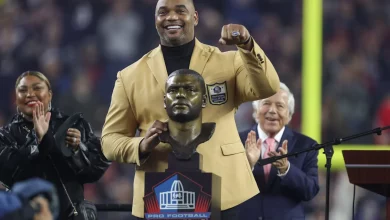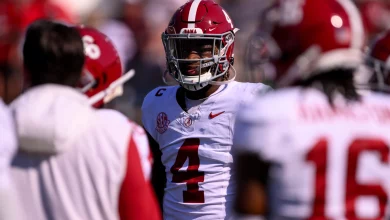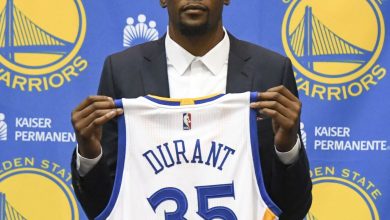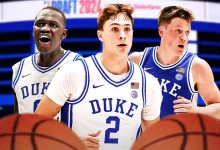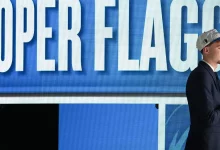Chelsea Co-Owner Buys Los Angeles Lakers in World’s Most Expensive Sports Takeover
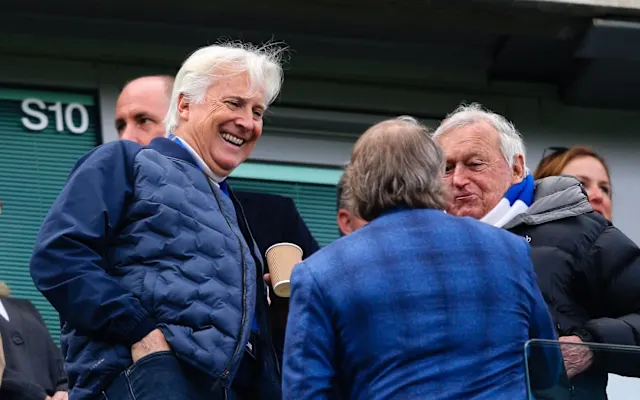
Chelsea Co-Owner Buys Los Angeles Lakers in World’s Most Expensive Sports Takeover
In a landmark moment for the world of sports and business, the Los Angeles Lakers have officially changed hands in what is being called the world’s most expensive sports takeover. The buyer? None other than a co-owner of Chelsea Football Club, marking a seismic shift not only in NBA ownership but also in the global sports landscape. This acquisition not only highlights the increasing convergence of international sports markets but also signals a new era for one of basketball’s most legendary franchises.
The Los Angeles Lakers, with their storied history of championships, star-studded rosters, and Hollywood glamour, have long been one of the most valuable franchises in professional sports. Their legacy is built on decades of dominance, featuring legends like Magic Johnson, Kareem Abdul-Jabbar, Kobe Bryant, and LeBron James. Yet, despite their incredible on-court success, the ownership of the team has largely remained stable over the past four decades — until now. The entrance of a Chelsea co-owner into the NBA ecosystem with the acquisition of the Lakers is a move that has instantly captured worldwide attention.
This takeover stands out not only because of the team involved but also due to the staggering price tag. Reports indicate that this deal represents the highest amount ever paid for a sports franchise globally, underscoring the soaring valuations of sports properties fueled by media rights, global fanbases, and commercial partnerships. This eye-watering figure reflects how sports teams are no longer just athletic enterprises but powerful global brands with diversified revenue streams.
The identity of the buyer—a co-owner of Chelsea FC—adds a fascinating layer to this story. Chelsea, a giant in English Premier League football, is known for its competitive edge, ambitious management, and global following. The co-owner’s decision to expand his sports empire by purchasing the Lakers exemplifies a growing trend among international investors who see immense potential in cross-sport synergies and expanding their influence across continents and markets.
The acquisition has generated widespread excitement and speculation throughout both the NBA and international football communities. Fans from both sides are curious about what this means for their beloved teams and the potential for new innovations in how these franchises are managed. Will there be collaboration between Chelsea and the Lakers? Could we see shared marketing strategies, cross-promotional events, or even groundbreaking fan engagement models combining basketball and football cultures?
From a business standpoint, the acquisition brings a wealth of opportunities. The new owner brings fresh capital, global connections, and a business acumen honed through involvement in one of the most competitive football leagues in the world. The Lakers, situated in the entertainment capital of the world, stand to benefit enormously from this global perspective, particularly when it comes to expanding their reach into international markets and tapping into new revenue sources.
This takeover is also emblematic of the increasing globalization of sports ownership. In recent years, we’ve seen a wave of foreign investment across American sports leagues, from European soccer magnates buying NHL teams to Middle Eastern and Asian investors acquiring stakes in NFL and NBA franchises. This trend reflects a fundamental shift: sports teams are no longer local or national institutions alone—they are global brands with millions of fans worldwide.
The Lakers, under this new ownership, are poised to become a centerpiece of this global strategy. The new owner’s experience with Chelsea FC means they understand how to leverage digital media, merchandising, and international tours to build a loyal, worldwide fanbase. For the Lakers, this could translate into expanded international preseason games, enhanced global marketing campaigns, and deeper engagement with fans in key markets like China, Europe, and Latin America.
The NBA community has reacted with a mixture of enthusiasm and curiosity. Analysts and insiders highlight that the new owner’s track record with Chelsea shows a willingness to invest heavily in the team’s success, combining savvy financial management with a clear vision for growth. This could signal a new era of aggressive investment for the Lakers, not only in player acquisitions but also in infrastructure, coaching, and community outreach programs.
Of course, the transition also comes with challenges. Integrating ownership styles, preserving the Lakers’ unique culture, and maintaining the delicate balance of team chemistry will require careful navigation. The Lakers have a rich history built on a combination of star power, leadership, and a distinctive brand of entertainment basketball. The new ownership must respect these traditions while bringing innovative ideas to keep the team competitive in a rapidly evolving NBA landscape.
Fans, particularly those deeply connected to the Lakers’ legacy, have expressed a range of emotions. Some worry about changes to the team’s identity or the possible impact of foreign ownership on local ties. Others are hopeful that this bold move could usher in a new golden era, with enhanced resources translating to more championships and greater global prominence. Social media buzzes with speculation, excitement, and a palpable sense of anticipation about what the future holds.
The takeover also puts the Lakers in a unique position to capitalize on the convergence of sports and entertainment. Los Angeles is the epicenter of global entertainment culture, home to Hollywood, major music festivals, and countless media companies. The new ownership’s connections could lead to innovative partnerships that merge basketball with music, film, and digital content in unprecedented ways. This might include celebrity endorsements, immersive fan experiences, or exclusive multimedia content that broadens the Lakers’ appeal beyond traditional sports audiences.
Moreover, this acquisition highlights how the sports industry is evolving into a high-stakes arena for billionaire investors and global conglomerates. With lucrative TV deals, sponsorships, and merchandise sales, owning a sports team today is about much more than winning games — it’s about building a multifaceted brand that can compete on a global stage. The Lakers’ sale, at such a record-breaking price, cements their position as a flagship franchise and exemplifies this new era of sports business.
It also raises questions about how the NBA will continue to grow internationally. The league has already made strides in expanding its footprint, with games in Europe, Asia, and Latin America, and a growing international player base. The Lakers, now under ownership with deep soccer industry ties, might serve as a bridge to accelerate this global growth, potentially pioneering new fan engagement models that blend basketball and football fandom.
From a competitive standpoint, the Lakers remain one of the NBA’s premier teams, boasting stars capable of contending for championships. The infusion of new ownership energy and resources could lead to more aggressive moves in free agency or the trade market. The pressure to deliver a title, given the franchise’s high standards, will be immense, but with strong leadership and strategic investment, the Lakers are well positioned to rise to the challenge.
In the end, this unprecedented sports takeover is a watershed moment in professional sports history. It reflects the growing interconnectedness of global sports markets, the evolving nature of team ownership, and the extraordinary value placed on iconic franchises. For the Los Angeles Lakers, it opens the door to new possibilities, new strategies, and a reimagined future.
As fans, analysts, and stakeholders watch this story unfold, one thing is clear: the world of sports has entered a new chapter where boundaries between leagues, continents, and industries blur. The Lakers, now owned by a Chelsea co-owner, stand at the forefront of this evolution — ready to leverage their legendary past and embrace a bold, globally minded future.
This historic acquisition is more than a change of hands; it is a powerful statement about the future of sports ownership and the limitless potential of combining basketball’s biggest brand with global sports expertise. The Lakers’ journey continues — bigger, bolder, and more exciting than ever before.




